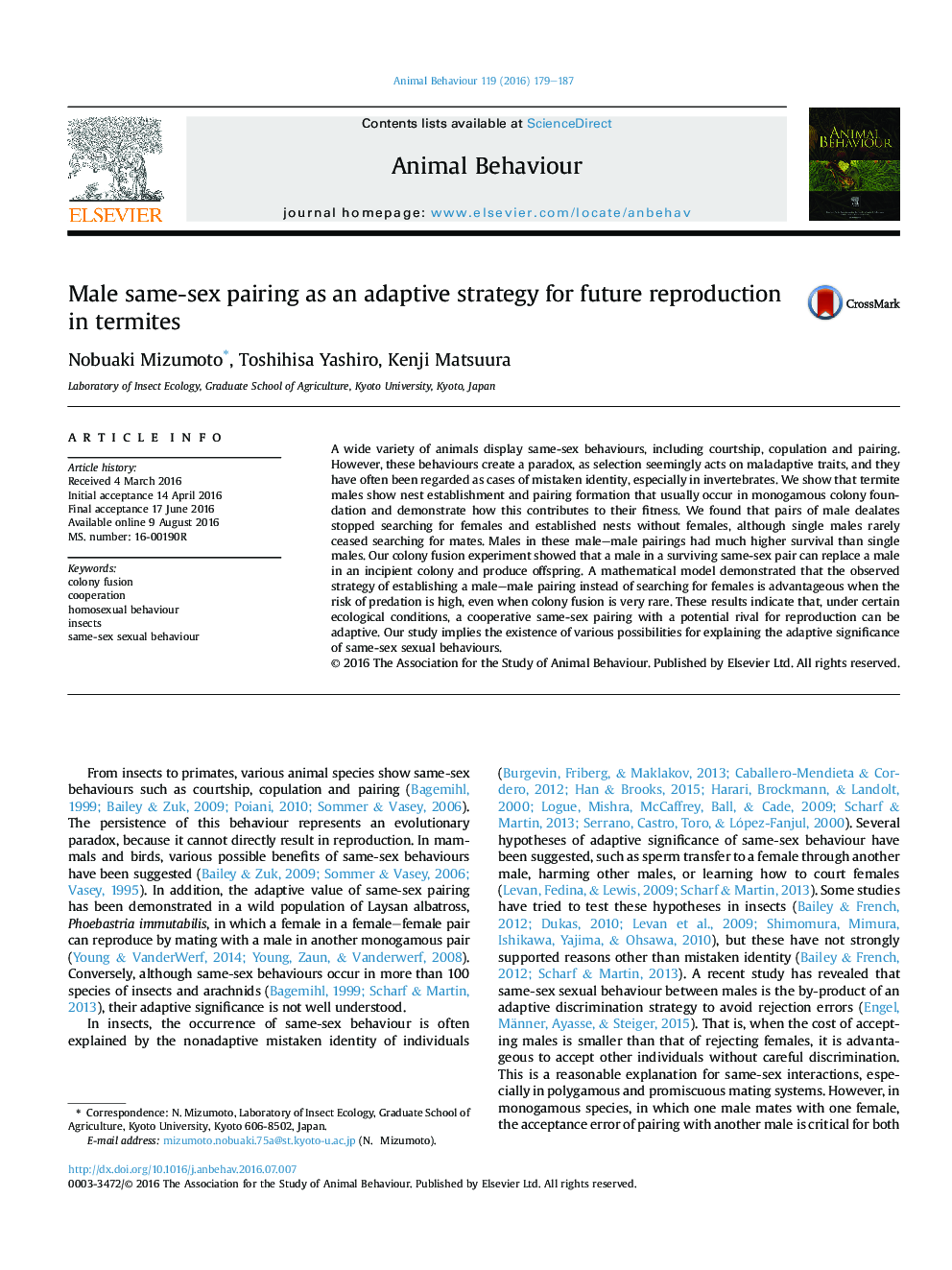| Article ID | Journal | Published Year | Pages | File Type |
|---|---|---|---|---|
| 2416275 | Animal Behaviour | 2016 | 9 Pages |
•Pairs of termite males stop searching for females and established nests.•Males in male–male pairings have much higher survival than single males.•A male in a same-sex pair has a chance to produce offspring by colony fusion.•A mathematical model showed the adaptive conditions to form a male–male pair.•Our results explain the adaptive significance of same-sex sexual behaviours.
A wide variety of animals display same-sex behaviours, including courtship, copulation and pairing. However, these behaviours create a paradox, as selection seemingly acts on maladaptive traits, and they have often been regarded as cases of mistaken identity, especially in invertebrates. We show that termite males show nest establishment and pairing formation that usually occur in monogamous colony foundation and demonstrate how this contributes to their fitness. We found that pairs of male dealates stopped searching for females and established nests without females, although single males rarely ceased searching for mates. Males in these male–male pairings had much higher survival than single males. Our colony fusion experiment showed that a male in a surviving same-sex pair can replace a male in an incipient colony and produce offspring. A mathematical model demonstrated that the observed strategy of establishing a male–male pairing instead of searching for females is advantageous when the risk of predation is high, even when colony fusion is very rare. These results indicate that, under certain ecological conditions, a cooperative same-sex pairing with a potential rival for reproduction can be adaptive. Our study implies the existence of various possibilities for explaining the adaptive significance of same-sex sexual behaviours.
